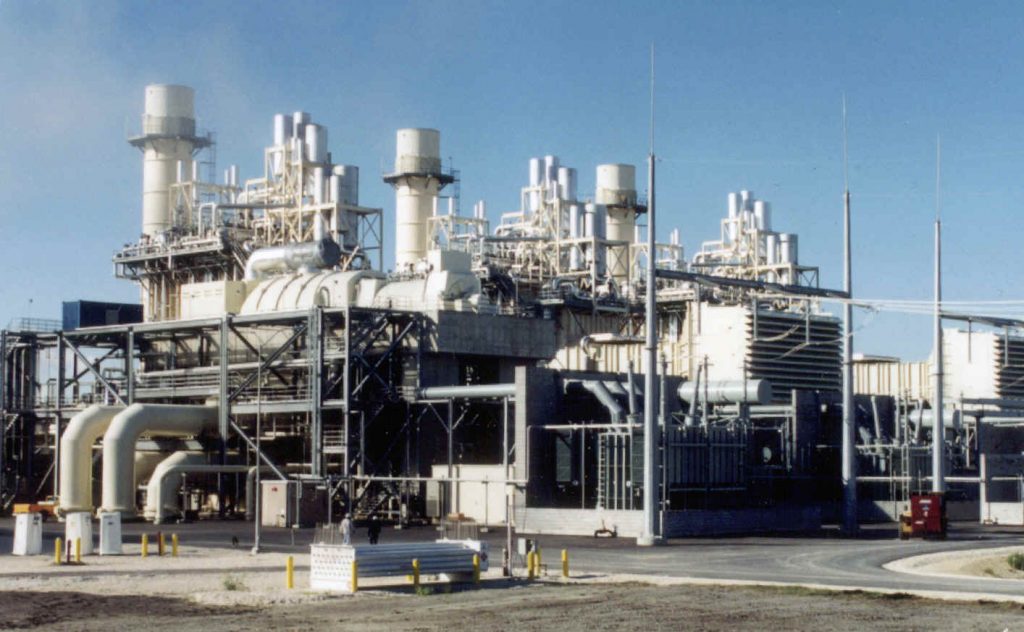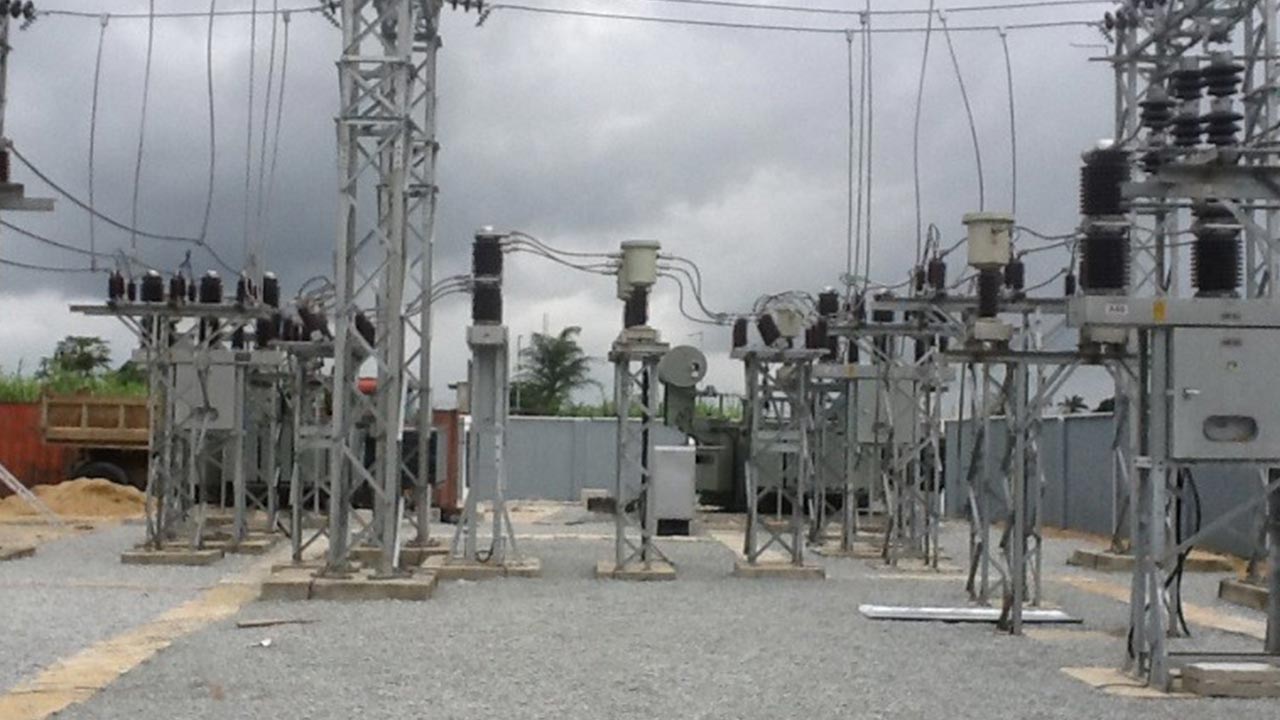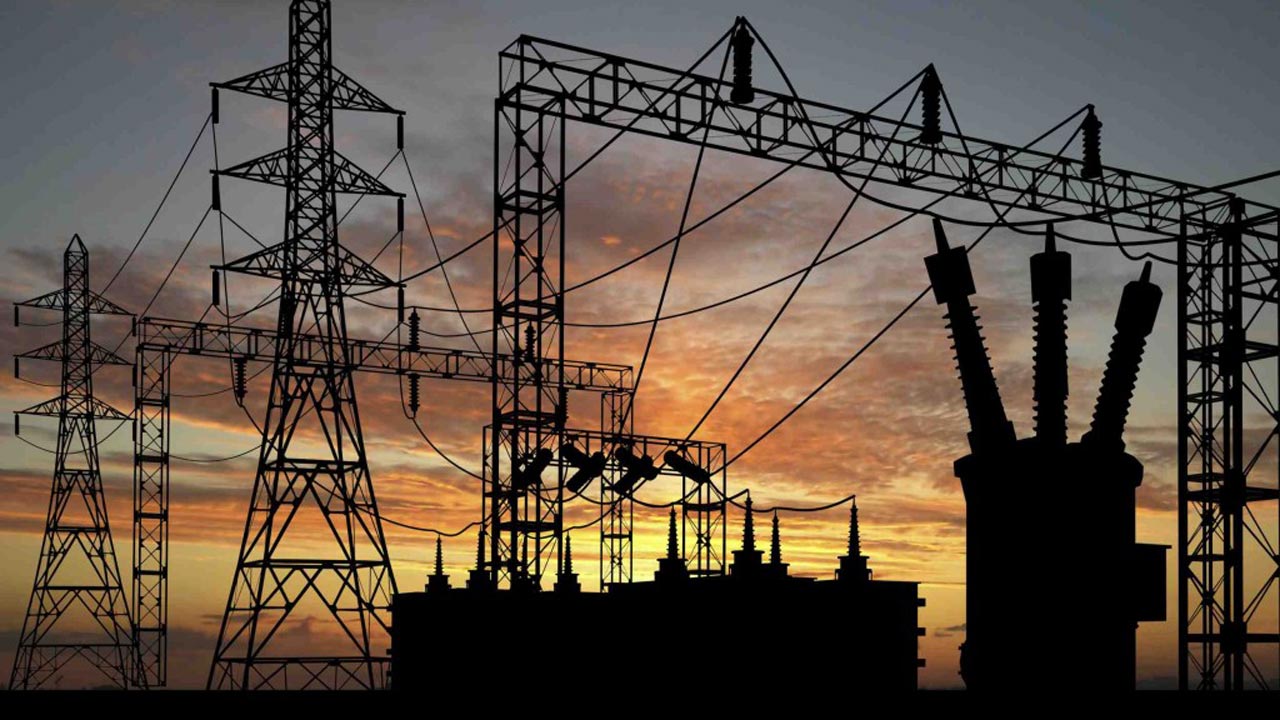ENERGY/ POWER GENERATION BUSINESS PLAN IN NIGERIA
 ENERGY/ POWER GENERATION BUSINESS PLAN IN NIGERIA
ENERGY/ POWER GENERATION BUSINESS PLAN IN NIGERIA
This sample energy/power generation business plan in Nigeria can be used for government and non – government business grant applications, for bank loan applications, for writing business proposals, to write business concept notes, for business grant competitions, other competitions, and so on. The energy/ power generation business plan in Nigeria plays a huge role in industry; hence is very lucrative, and will require a lot of strategic planning to launch it. You will also need the technical know – how and guidance of a professional business consultant in Nigeria like Dayo Adetiloye to help you in implementing the business plan.
BUSINESS DESCRIPTION OF THE ENERGY/ POWER GENERATION BUSINESS PLAN IN NIGERIA
Business: ENERGY/ POWER GENERATION
Industry: ENERGY
Patilad Power Group is incorporated Lagos. And was formed to develop technologies for the generation of electricity for sale to the grid by utilizing novel technologies to capture streams of fuel sources currently being wasted. Consumers or purchasers of distributed electricity, include the local distribution lines, the facility where the glycerin is being produced, and sometimes both.
Utilizing a combination of patentable mechanical technology and providing fuel burning processes, the company has determined a method by which waste glycerin can be burned ecologically and with cleaner emissions. As well, generators used in this application operate more , efficiently and with large electrical power generation capabilities
Patilad expects to implement technology for converting glycerin to electricity on sites totalling more than 20 megawatts in the next three years.
In summary, Patilad has developed a technology that eliminates the difficulties that many have had with regard to efficient and reliable energy production from waste glycerin st biodiesel producing sites. The cost for this technology is extremely competitive with other leading edge renewable sources of energy.
Problem Statement:
Inefficiencies in Energy Production:
Traditional methods of energy production often suffer from inefficiencies, leading to increased operational costs and suboptimal output. The current scenario in Lagos highlights the need for a paradigm shift in energy generation to meet growing demands efficiently
Environmental Concerns:
Conventional energy production methods, especially those involving the burning of fossil fuels, contribute significantly to environmental degradation. Lagos grapples with the consequences of pollution, necessitating a move towards cleaner and greener alternatives.
Waste Glycerin Disposal Challenges:
Biodiesel production sites generate substantial amounts of waste glycerin, posing disposal challenges and environmental hazards. The lack of effective solutions results in the wastage of a potential energy source.
Solution Statement:
Innovative Technology Utilization:
Patilad Power Group addresses these challenges through the application of patentable mechanical technology and advanced fuel-burning processes. This approach not only enhances the efficiency of energy production but also mitigates environmental impact by utilizing waste glycerin as a viable fuel source.
Emission Reduction and Ecological Burning:
The company’s groundbreaking technology ensures that waste glycerin is burned ecologically, resulting in cleaner emissions. By incorporating environmentally friendly practices, Patilad contributes to the reduction of air pollutants, aligning with global sustainability goals.
Enhanced Generator Performance:
Patilad’s generators, specifically designed for glycerin-based electricity generation, operate more efficiently and boast larger electrical power generation capabilities. This advancement positions the company as a pioneer in optimizing generator performance for sustainable energy solutions.
Competitive Cost Structure:
One of the key advantages of Patilad’s technology lies in its cost competitiveness compared to other leading-edge renewable energy sources. This affordability factor makes the solution accessible and economically viable for a wider range of stakeholders, fostering widespread adoption.
Technological Overview:
Patentable Mechanical Technology:
Patilad’s patented mechanical technology forms the backbone of their energy generation solution. This section delves into the intricacies of the technology, emphasizing its uniqueness and effectiveness in converting waste glycerin into electricity.
Fuel Burning Processes:
The fuel-burning processes employed by Patilad represent a leap forward in ecologically sound energy production. The document explores the specifics of these processes, highlighting how they contribute to cleaner emissions and increased efficiency.
Implementation Plan:
Patilad Power Group envisions implementing its glycerin-to-electricity conversion technology across multiple sites, with a targeted capacity of over 20 megawatts within the next three years. This section outlines the company’s strategic roadmap, including site selection criteria, project timelines, and potential challenges in scaling up the technology.
Environmental Impact Assessment:
An in-depth analysis of the environmental impact of Patilad’s technology is crucial for assessing its sustainability. This section explores the reduction in carbon footprint, air quality improvements, and overall ecological benefits resulting from the adoption of this innovative energy solution.
Economic Implications:
Job Creation:
The implementation of Patilad’s technology is expected to generate employment opportunities, ranging from skilled technicians for technology maintenance to administrative roles associated with project management.
Cost-Benefit Analysis:
A comprehensive cost-benefit analysis examines the economic viability of adopting Patilad’s technology, considering factors such as initial investment, operational costs, and long-term savings.
Stakeholder Engagement and Community Outreach:
Engaging with stakeholders, including local distribution lines and biodiesel-producing facilities, is critical for the success of Patilad’s initiatives. This section outlines the company’s community outreach plans, ensuring collaboration and support from all relevant parties.
The Benefits of our Products and Services are;
– Effective energy/power generation
– Design new technologies that eliminates difficulties encountered during energy/power generation
– Economic growth and development
– Employment opportunities for so many people
– Fair and highly competitive prices
OUR PRODUCTS AND SERVICES
Patilad Power Group will specialize on the effective and reliable generation of electric power from waste deposits, such as glycerin dumps from landfill sites.
Patilad expects to implement the technology for converting of glycerine to electricity on sites totalling more than 20 megawatts in the next three years.
 ENERGY/ POWER GENERATION BUSINESS PLAN IN NIGERIA
ENERGY/ POWER GENERATION BUSINESS PLAN IN NIGERIA
KEYS TO SUCCESS
The keys to the success of the energy/power generation business plan in Nigeria are as follows;
– Improving technologies that eliminates difficulties encountered during energy/power generation in Nigeria
– Maintaining a high standard of energy/power generation.
– Maintain a team of highly motivated and experienced staff
– Prompt service delivery
– Quality assured standard
– Highly competitive prices and rates
OBJECTIVES OF THE ENERGY/POWER GENERATION BUSINESS PLAN IN NIGERIA
The following are the objectives of the energy/power generation business plan in Nigeria;
– To produce products and services whose primary goal is to exceed our customers expectations
– To establish our brand in the heart of major cities in Nigeria
– To reach net profit in year one, increasing in year two, by containing costs and meeting sales targets
– To achieve net profit of $10,000,000 in four years of operation
GOALS FOR THE ENERGY/POWER GENERATION BUSINESS PLAN IN NIGERIA
The goals we have set for the energy/power generation business plan in Nigeria are the following:
– To produce reliable and efficient electric power
– To continue to expand our business into other parts of Nigeria
– To absorb at least 1000 Nigerians into our company by our fourth year
– To create a great user experience for our customers
VISION FOR THE ENERGY/POWER GENERATION BUSINESS PLAN IN NIGERIA
The vision of the energy/power generation business plan in Nigeria is; To initiate a scheme which improves on energy/power generation efficiency in Nigeria, and continue to set the pace for energy/power generation in Nigeria
MISSION FOR THE ENERGY/POWER GENERATION BUSINESS PLAN IN NIGERIA
The mission for the energy/power generation business plan in Nigeria is: To design, build, test and commission new and better technologies for energy/power generation in Nigeria.
MANAGEMENT TEAM OF THE ENERGY/POWER GENERATION BUSINESS PLAN IN NIGERIA
The management team of the energy/power generation business plan in Nigeria is made up of these people:
Jeremy Bright 🙁 B.ENG, CCNA, CCNE, CCNI, and PMP). He is the founder and owner of PATILAD Power Group. He has had over thirty years experience in the energy/power generation sector of industry, having worked for some of the leading energy/power companies in Europe. He is an alumnus of the University of Texas, Texas, USA
Dayo Adetiloye:( B.AGRIC, MBA, and PMP). He has over fifteen years experience in business management, business start – up dynamics, financial management of business and overall business growth and development. He is an alumnus of the Enterprise Development Centre(EDC), of the Lagos Business School(LBS), Pan African University(PAU). He is our business development strategist and also a strategic partner of the company.
We brought to the business;
– Business and scientific exposure to lead this endeavour into productive returns for investors and partners.
– Educational skill and practical experience in the energy/power sector of industry
– Capacity to consistently provide outstanding services and products
– Quality processed products and services
– Our staff bring operational, marketing, technical and educational skills to the business
 ENERGY/ POWER GENERATION BUSINESS PLAN IN NIGERIA
ENERGY/ POWER GENERATION BUSINESS PLAN IN NIGERIA
MANAGEMENT EXPERIENCE GAINED FOR THE ENERGY/POWER GENERATION BUSINESS PLAN IN NIGERIA
With over thirty years experience in the energy/power generation sector of industry, and through numerous exposure to both the business and scientific aspects of services. I have been able to master the technical requirements, financial manager, staff recruitments and organizational skills among other things which are necessary to give us a good commendation and quality referrals from our customers/clients. My managerial skill has also helped me in putting together a workforce for over five years, and to coordinate the teamwork in most aspects of the company. I am the CEO of the company, and I will be overseeing the day to day activities of the company.
MATERIALS AND EQUIPMENTS REQUIRED FOR THE ENERGY/POWER GENERATION BUSINESS PLAN IN NIGERIA
Developing a comprehensive energy/power generation business plan for Nigeria involves considering various materials and equipment necessary for the successful implementation of the plan. Below is a detailed list of materials and equipment required for such a business:
Materials Required:
1. Glycerin:
– Bulk quantities of waste glycerin generated from biodiesel production sites.
2. Chemicals and Catalysts:
– Chemicals required for the glycerin-to-electricity conversion process.
– Catalysts for fuel burning processes and emission control.
3. Fuel Storage Tanks:
– Tanks for the storage of glycerin and other fuels in a safe and organized manner.
4. Piping and Tubing:
– High-quality pipes and tubing for the transportation of glycerin and other fluids within the system.
5. Insulation Materials:
– Insulation to ensure the efficient functioning of pipes and equipment, especially in high-temperature areas.
6. Generator Units:
– Specialized generators designed for glycerin-based electricity generation.
– Backup generators for redundancy and uninterrupted power supply.
7. Control Systems:
– Advanced control systems for monitoring and managing the entire energy generation process.
8. Electrical Components:
– Switchgear, transformers, and other electrical components necessary for power distribution.
9. Cooling Systems:
– Cooling systems to maintain optimal operating temperatures for generators and associated equipment.
10. Emission Control Systems:
– Systems for controlling and monitoring emissions to ensure compliance with environmental regulations.
11. Safety Equipment:
– Personal protective equipment (PPE) for workers.
– Safety signs, alarms, and emergency shutdown systems.
12. Instrumentation and Sensors:
– Instruments and sensors for real-time monitoring of various parameters such as temperature, pressure, and fuel levels.
13. Waste Management Systems:
– Equipment for the proper disposal and management of waste generated during the energy generation process.
14. Building Materials:
– Construction materials for building facilities and structures required for the energy generation plant.
15. Lab Equipment:
– Laboratory equipment for regular testing and quality control of glycerin and other materials used in the process.
Equipment Required:
1. Glycerin-to-Electricity Conversion Units:
– Specialized machinery and equipment for converting waste glycerin into electricity.
2. Generators:
– High-capacity generators designed for glycerin-based power generation.
3. Fuel Burning Equipment:
– Furnaces or burners designed for the efficient burning of glycerin with minimal environmental impact.
4. Heat Exchangers:
– Heat exchange systems for transferring heat between different fluids, optimizing energy efficiency.
5. Control Panels:
– Automated control panels for managing and regulating the entire energy generation process.
6. Transformers:
– Transformers for stepping up or stepping down voltage levels as per the requirements of the power distribution system.
7. Cooling Towers:
– Cooling towers to dissipate heat generated during the energy generation process.
8. Switchgear:
– Electrical switchgear for controlling, protecting, and isolating electrical equipment.
9. Monitoring Systems:
– Advanced monitoring systems with sensors and software for real-time data collection and analysis.
10. Emission Control Devices:
– Devices such as scrubbers and catalytic converters for controlling and reducing emissions.
11. Backup Systems:
– Backup power systems to ensure uninterrupted energy production during emergencies or maintenance periods.
12. Safety Systems:
– Fire suppression systems, emergency shutdown systems, and other safety equipment to ensure a secure working environment.
13. Transportation Equipment:
– Vehicles for transporting materials, equipment, and personnel to and from the energy generation site.
14. Testing Equipment:
– Specialized testing equipment for quality control and compliance with industry standards.
15. Maintenance Tools:
– Tools and equipment for routine maintenance and repairs.
Infrastructure and Facilities:
1. Site Development:
– Land for setting up the energy generation plant.
– Construction materials for site development.
2. Facility Buildings:
– Administrative offices, control rooms, and other essential buildings.
3. Utilities:
– Water supply systems.
– Electrical infrastructure for connecting the plant to the grid.
4. Access Roads:
– Roads for easy access to the energy generation site.
5. Security Systems:
– Surveillance cameras, access control systems, and other security measures.
6. Waste Disposal Facilities:
– Facilities for proper disposal of waste generated during the energy generation process.
Regulatory Compliance and Documentation:
1. Environmental Impact Assessment (EIA) Studies:
– Studies and documentation required for obtaining environmental clearances.
2. Permits and Licenses:
– Regulatory permits and licenses for operating an energy generation plant.
3. Legal and Compliance Documentation:
– Contracts, agreements, and legal documentation ensuring compliance with local laws and regulations.
This comprehensive list covers the essential materials, equipment, and infrastructure required for implementing an energy/power generation business plan in Nigeria. It is imperative to conduct thorough research, feasibility studies, and engage with relevant authorities to ensure compliance with local regulations and standards.
COMPETITOR ANALYSIS FOR THE ENERGY/POWER GENERATION BUSINESS PLAN IN NIGERIA
We get a lot of patronage for the following reasons:
– Use if cutting – edge technologies for power generation
– Proper identification of customer needs
– Prompt and effective serve delivery
– Quality assured standards
– Fair and lowest possible prices/rates
Our three main competitive advantages are:
1. Fair and lowest possible rates
2. Ability to properly identify the customers needs
3. Prompt and highly effective service delivery
For the remaining part of the energy/power generation business plan in Nigeria, along with the detailed financial analysis, pls contact any of our business consultant on 08105636015, or 08076359735, or send an email across to; dayohub@gmail.com
We help institutions, organizations and individuals to write business plans and business concepts, and train them on how to write good business plans
We can help you write a strong, comprehensive and winning business plan in Nigeria, for any use at all. contact any of our business consultant on 08105636015, or 08076359735, or send an email to dayohub@gmail.com
Related